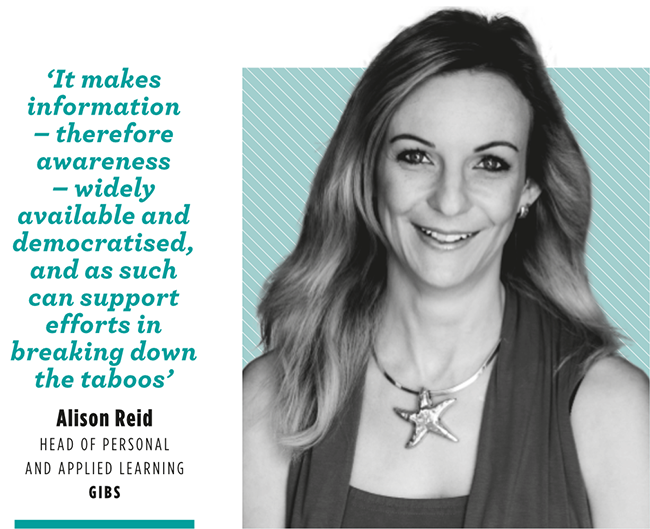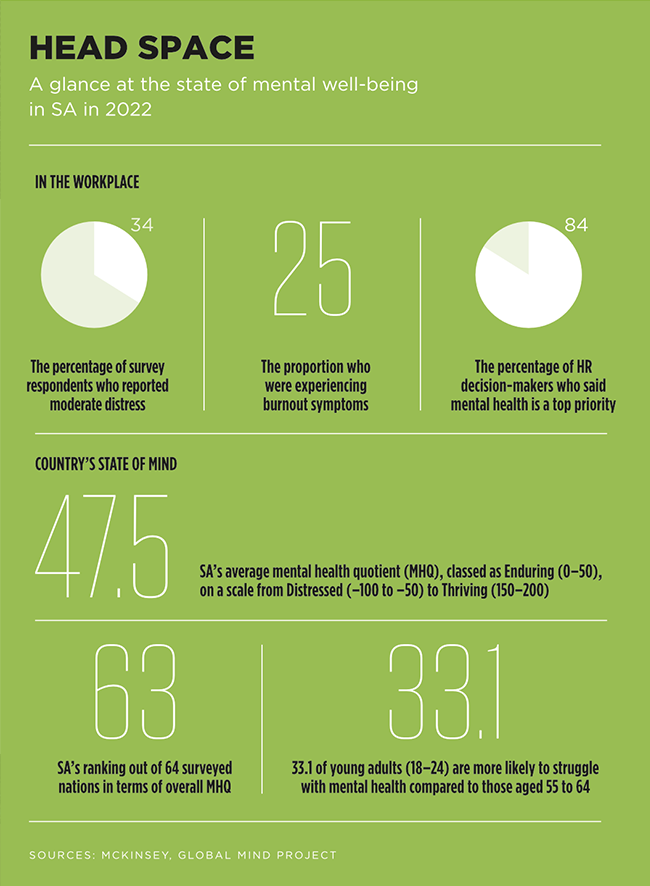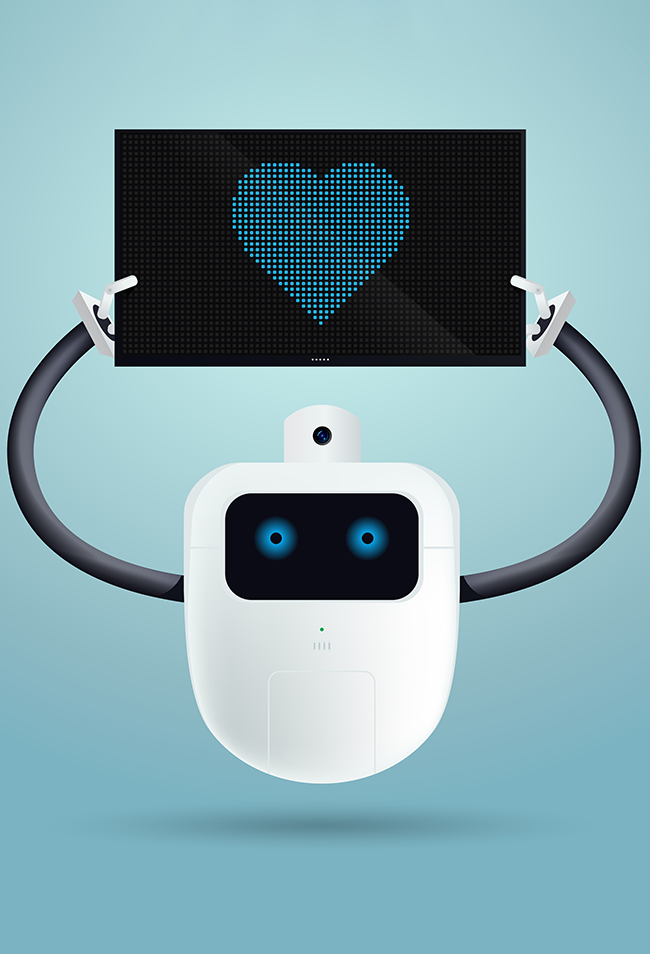Employees calling their workplace pretending to be sick may have to change their tune in future, literally. A new AI tool can detect from the tone of someone’s voice whether they genuinely have a cold. The Economist reported how researchers from India are using machine-learning algorithms to analyse the amplitudes of the vocal rhythms in human speech, which apparently change when someone has a cold. In 70% of cases the AI was correct. While the study was conducted to diagnose a cold remotely, without having to visit a doctor, it could also help employers keep their workforce from feigning illness, thereby reducing losses through fake sick leave.
While this might not improve employee well-being in an organisation, such technology as a resource to identify the unknowingly unwell could do. In the post-COVID world, mental health issues have taken on crisis proportions, with the 2022 Mental State of the World report naming SA as one of the countries with the worst mental health.
In the workplace, as many as 34% of SA respondents reported moderate distress in a recent McKinsey survey, while 25% said they were experiencing burnout symptoms. ‘When your employees’ well-being suffers, so does your organisation’s bottom line,’ says US analytics firm Gallup. ‘But when your employees’ well-being is thriving, your organisation directly benefits – they take fewer sick days, deliver higher performance and have lower rates of burnout and turnover.’ These are key reasons why SA companies have been directing more attention and investment to the mental health and well-being of their workforce. And many are turning to AI to address issues to improve the employee’s experience.
This starts with streamlining mundane tasks to free up employees for more complex or creative work. A Goldman Sachs report estimates that 25% of current work tasks in the US and Europe could be automated by AI, saving time and reducing costs.
In March 2023, tech giants Google and Microsoft both announced new generative AI features, which include options to automatically generate draft documents and create presentations based on prompts. AI not only helps users write and design better, it also assists in decluttering and organising their inbox and summarising long email threads. There’s a growing number of free and paid-for AI assistants (such as Plicca, MailBuddy, Clean Email, Reply.io, Boomerang for Gmail) for tasks such as managing and writing emails more efficiently, helping schedule meetings, and creating subject line and follow-up messages.

AI tools can also be useful for workplace stress management. Canadian firm Receptiviti provides insights into workforce engagement and company culture by analysing the text in surveys, performance reviews, meeting transcripts or work emails. Its AI-powered psycholinguistic analysis can detect indicators of stress, fatigue and burnout. Moreover, it can also measure the alignment and cohesiveness of leadership teams, diversity, compatibility and collaboration effectiveness – which all contribute to engagement and well-being at the workplace. ‘By analysing language from a psychological perspective by looking for patterns in stop word use, psychological signals emerge about the people who use them,’ says Jonathan Kreindler, Receptiviti co-founder.
He describes ‘stop words’ as prepositions and pronouns (a, the, is, to, and so on) that are normally ignored in sentiment analysis because they provide no context. ‘People who are stressed use stop words very differently than people who are not stressed,’ he says. This became clear during the pandemic, when Receptiviti analysed anonymised emails from its customers’ corporate email and communication systems to gauge how employees were coping.
One of the key findings saw ‘pervasive increases in anger and anxiety related to COVID-19 and work’, while another one noted a ‘decreased sense of affiliation and loosening of connections; typically beginning weeks after the onset of work-from-home’. The insights such as these can be applied by companies to address stress and disengagement at the root and improve employee well-being.
‘AI offers tremendous and very valuable advantages in the area of mental wellness, especially in a country with low access to mental healthcare services, inequities in access and high need,’ says Alison Reid, head of personal and applied learning at Pretoria University’s Gordon Institute of Business Science. ‘However, it doesn’t replace care and compassion or therapeutic input. Offering support that targets each of these areas, in a smart, ethical and holistic approach is where we should aim, in order to make a difference in what is a mental health pandemic.’ She explains that at a personalised (at scale) level, AI has the power to be widely accessible, intelligent and targeted to certain needs. ‘It makes information – therefore awareness – widely available and democratised, and as such can support efforts in breaking down the taboos that surround mental illness or even mental struggles,’ says Reid. ‘AI can learn and, therefore, be proactive, providing input when early signs of need – based on general group behaviour – show up.’

Many digital employee wellness programmes in SA use AI to personalise goals and track physical and mental well-being, often with data from wearable tech such as GPS-enabled watches with an integrated heart-rate monitor. Discovery Vitality, for example, built its behavioural programmes on the fact that personalised health recommendations and rewards can motivate people to make healthier choices.
Some innovative AI-driven platforms are addressing mental health, as well as physical and financial wellness, as part of employee assistance programmes. One of these is Journey Wellness, developed by the Cortex Group in SA. It provides information and ultra-personalised advice, coaching and guidance around healthy eating and diet, exercise and fitness, mental wellness and health, with a specific focus on chronic lifestyle diseases. As the user interacts with the platform and its virtual coach, the system continuously learns and improves the quality and relevance of the personalised advice and coaching.
Meanwhile a local start-up called Panda has launched an app to democratise mental health support and connect users with the right care for their specific issue, including one-on-one sessions with experts. Founded by Alon Lits, former GM and director at Uber SA, and Allan Sweidan, clinical psychologist and co-founder of the Akeso Group, which owns psychiatric hospitals, the basic app is currently free. More specialised versions of Panda (‘the gym for your mind’) are available for companies and insurers, aiming to give proactive mental care for high performance staff, and private group and coaching sessions that address the specific concerns in each organisation. The platform also provides data on a company’s well-being scores, team culture and performance insights.
Unlike traditional employee assistance programmes, which, according to Panda, lose money with about 8% utilisation and averaging between 2% and 6%, the new platform actively drives utilisation and averages 45% to 65% utilisation at businesses. Panda’s differentiator is its ‘Forest’ where users can anonymously interact with peers through a chat function, or listen (and take part in) live, audio-only sessions by experts and community members on a wide range of mental health topics. AI enables a deep understanding of every user and their needs, specifically tailoring the content and recommendations.
However, while AI-powered personalised solutions have the potential to revolutionise employee wellness programmes and de-stigmatise mental health issues, there are still many questions that need answering regarding topics such as ethics and law, confidentiality and privacy, or data bias. As Reid says, AI may amplify human effectiveness but at this stage it can’t replace human specialists and therapeutic expertise.








